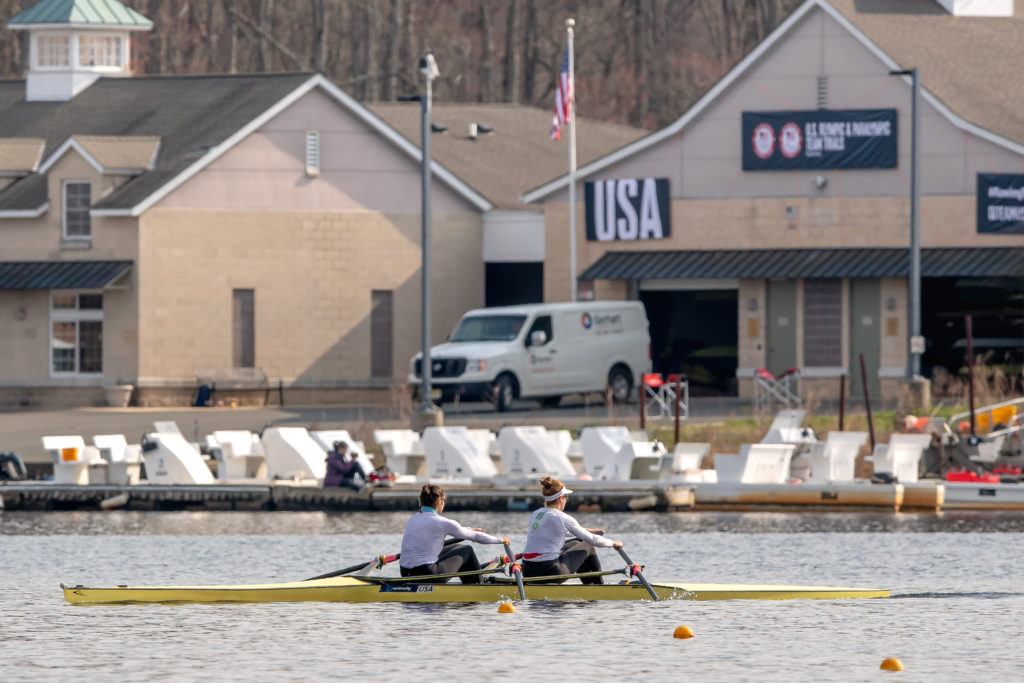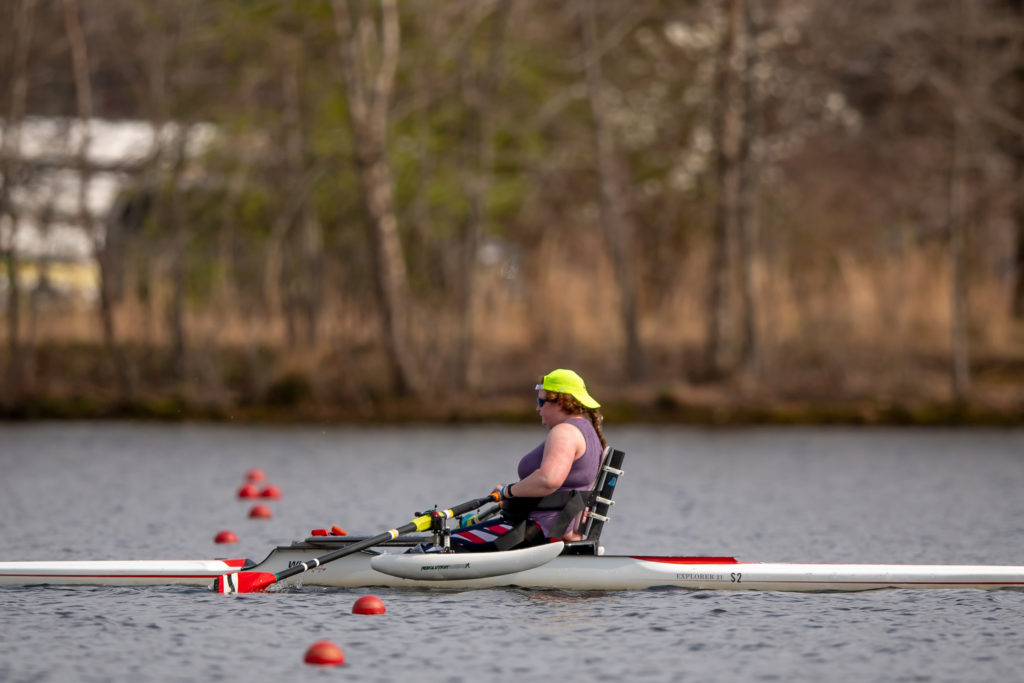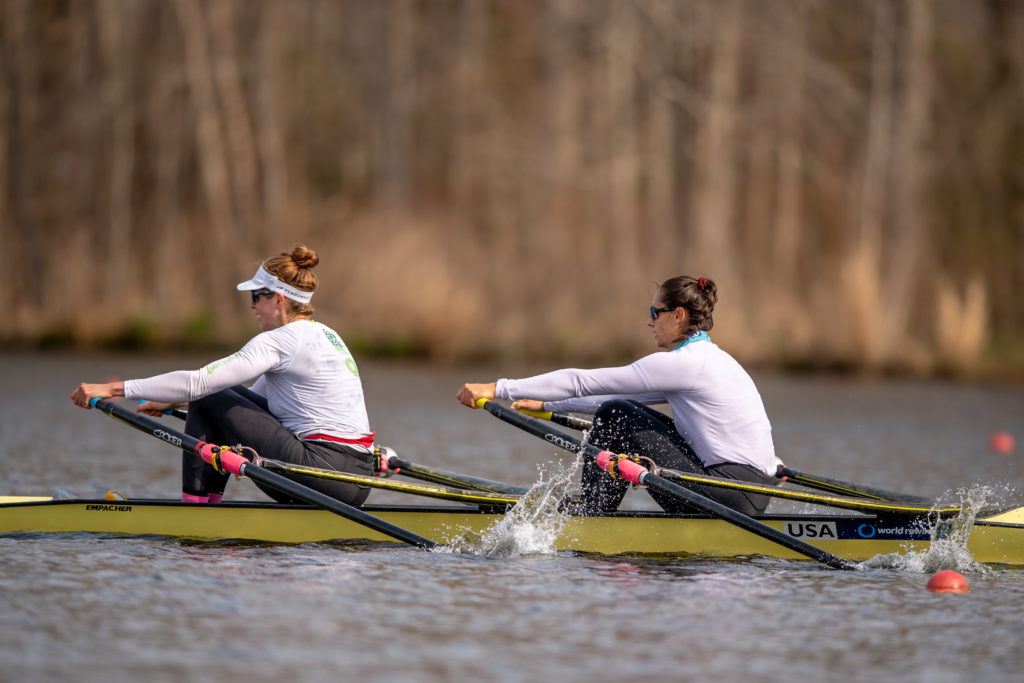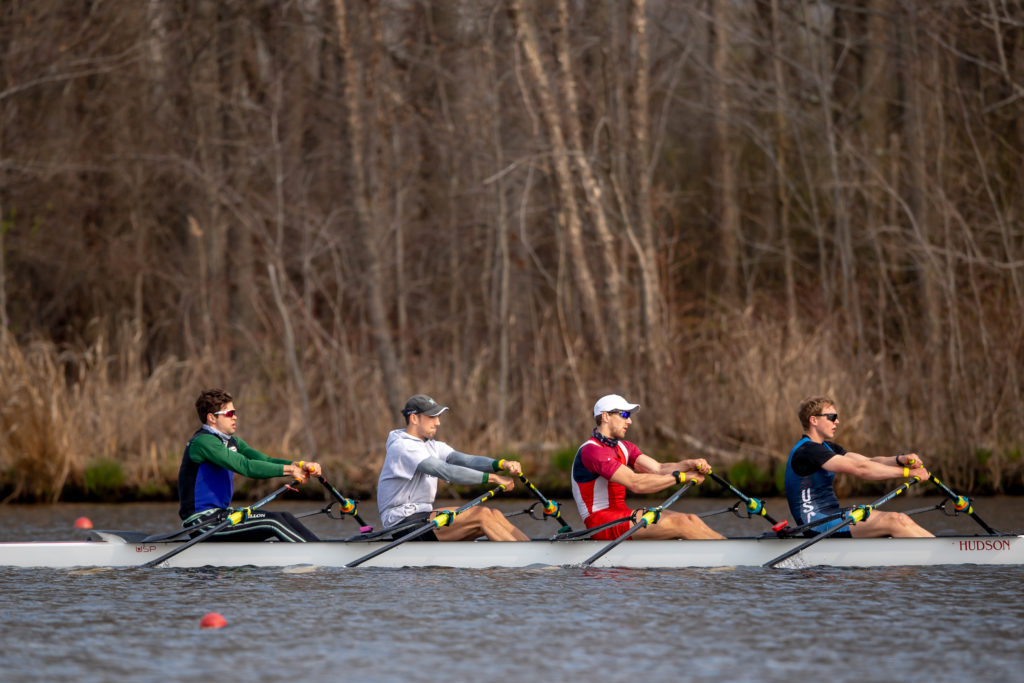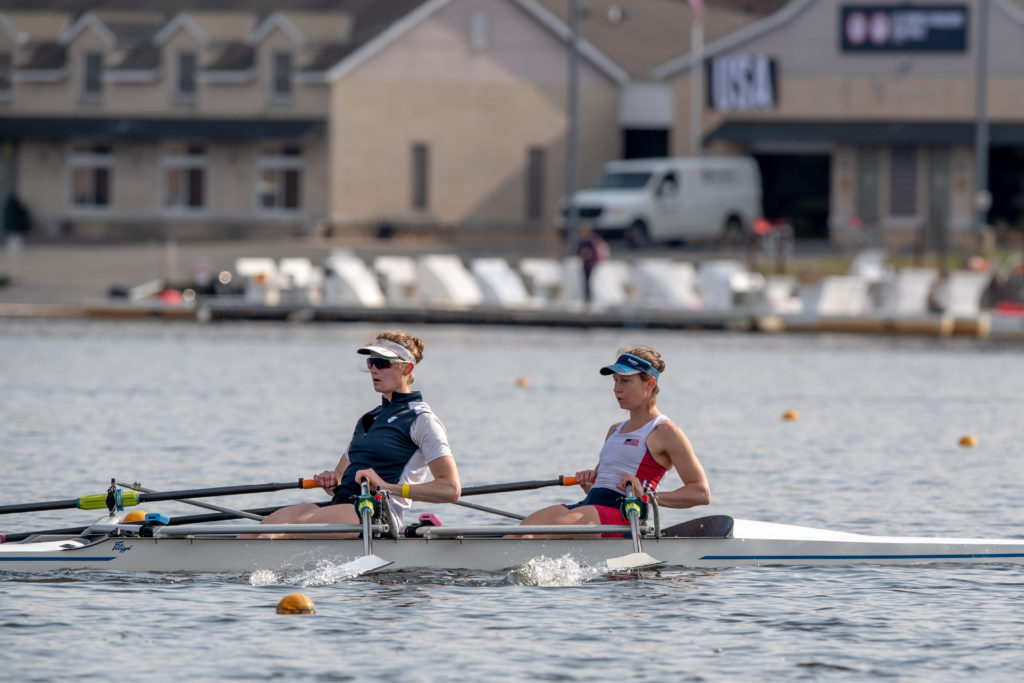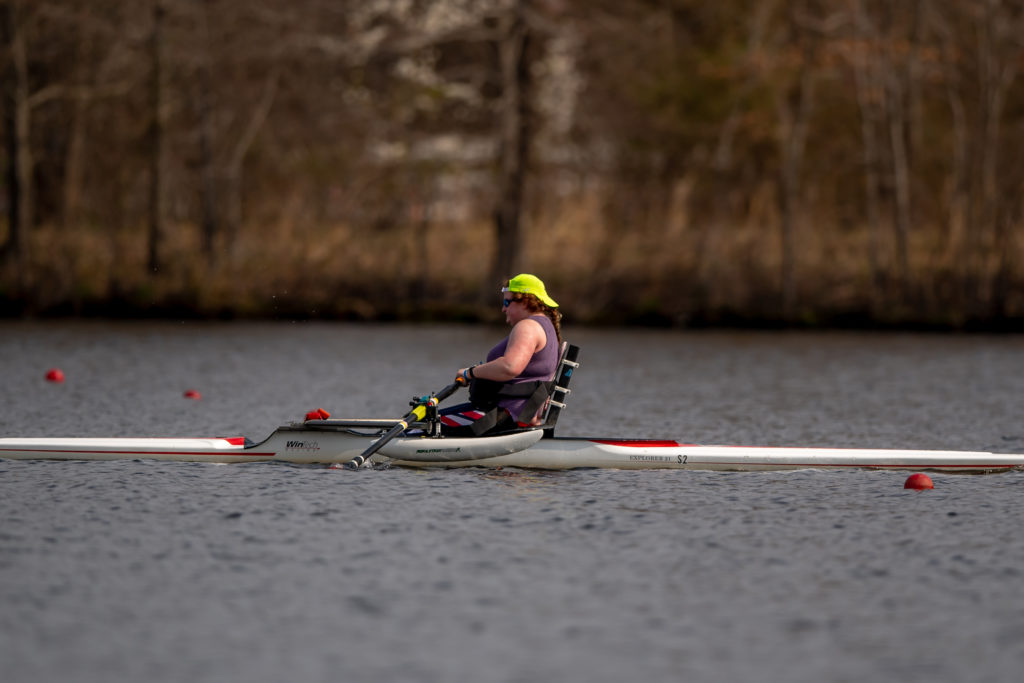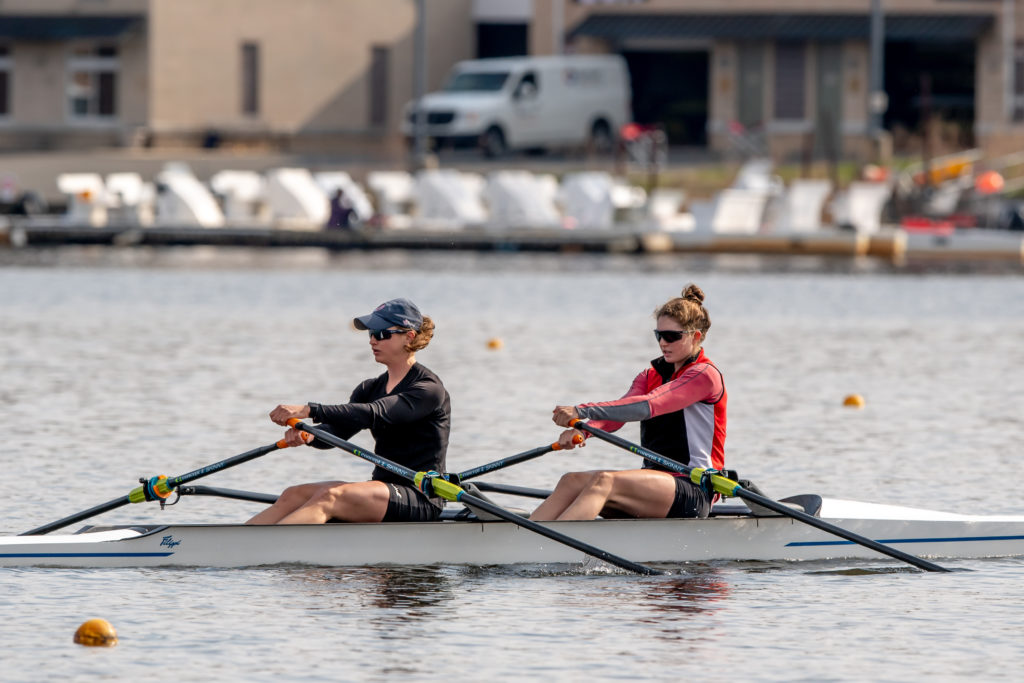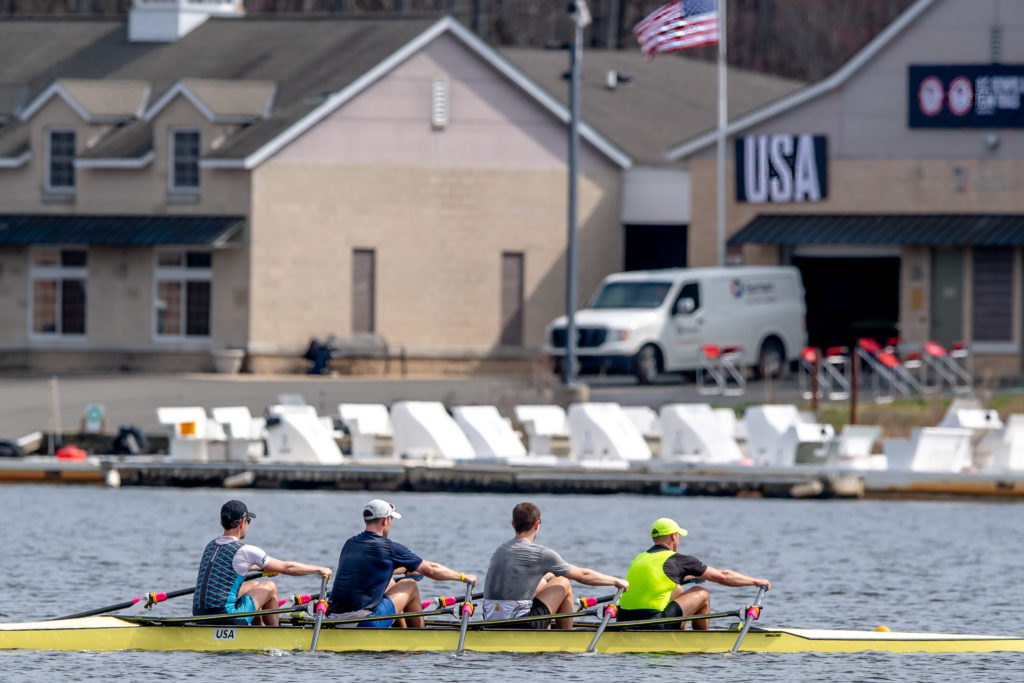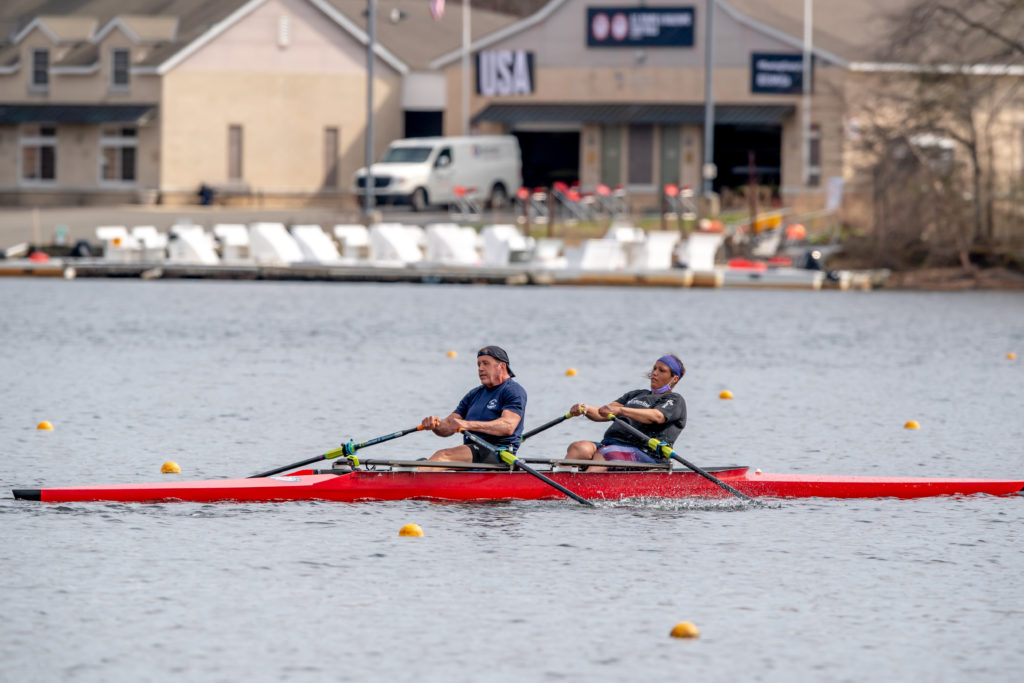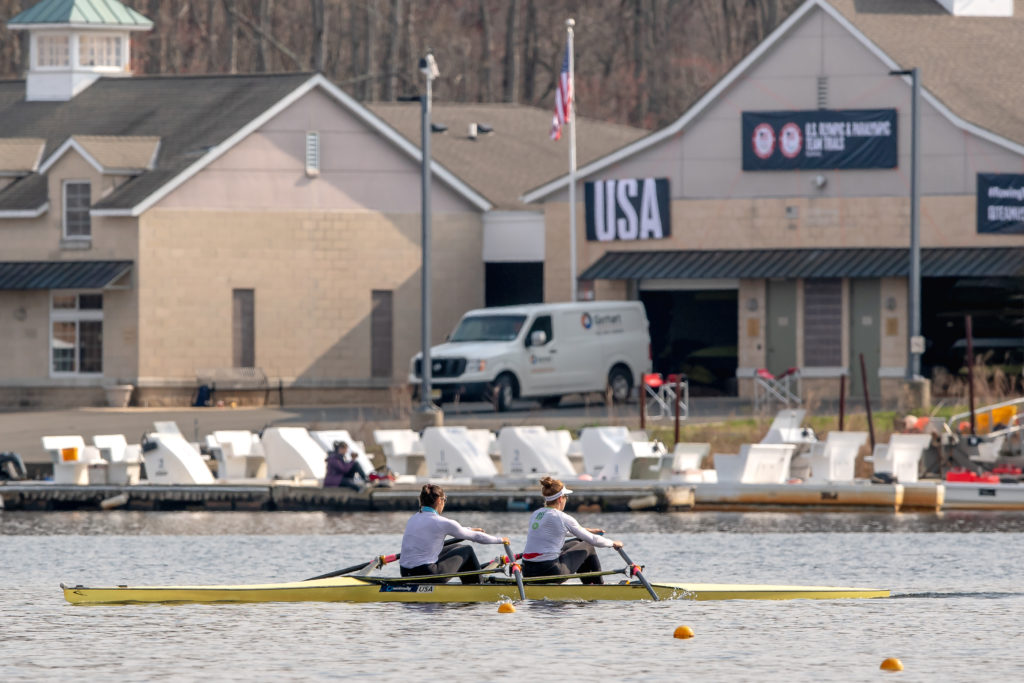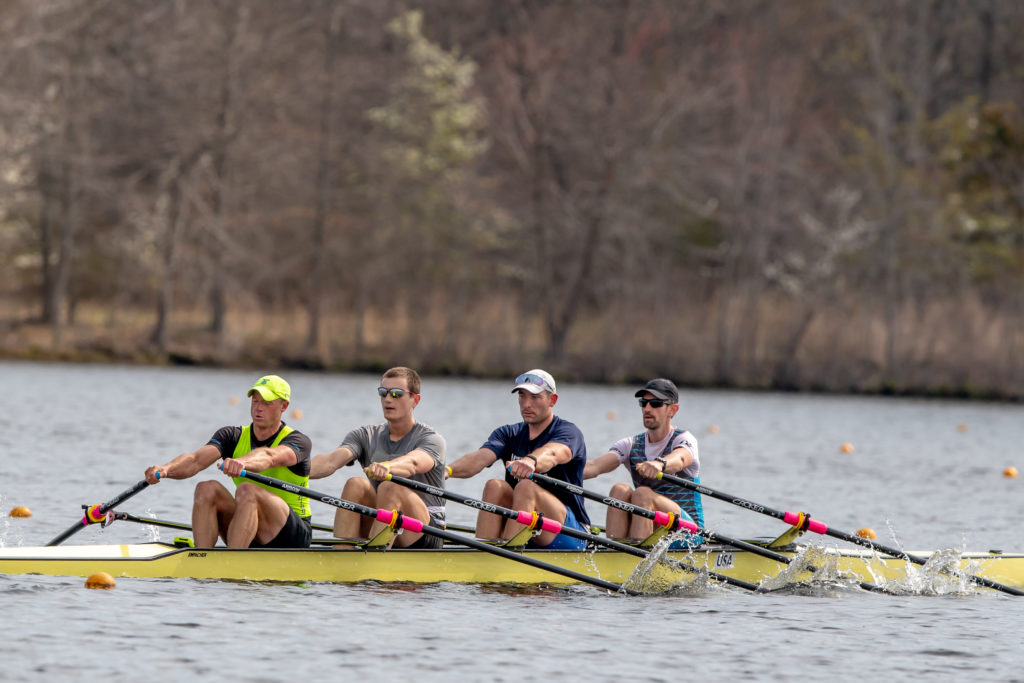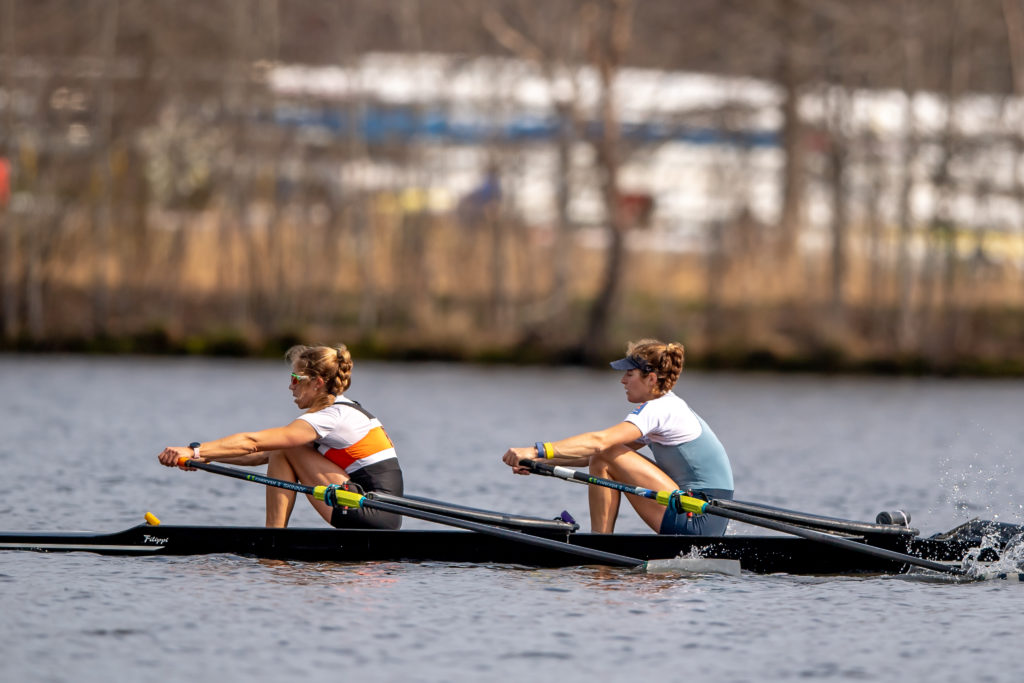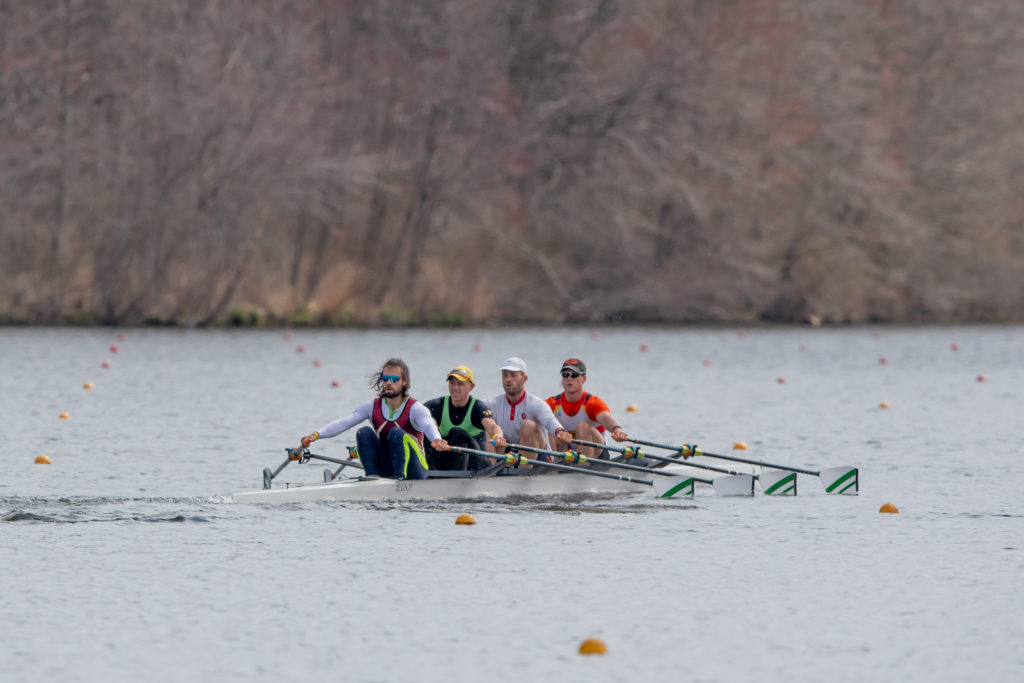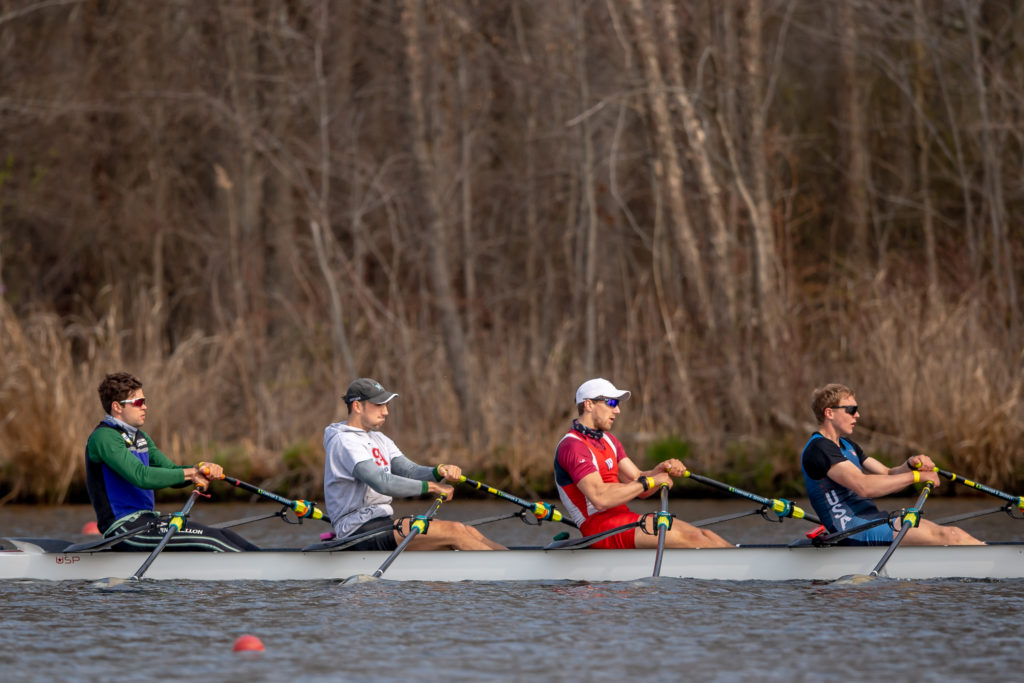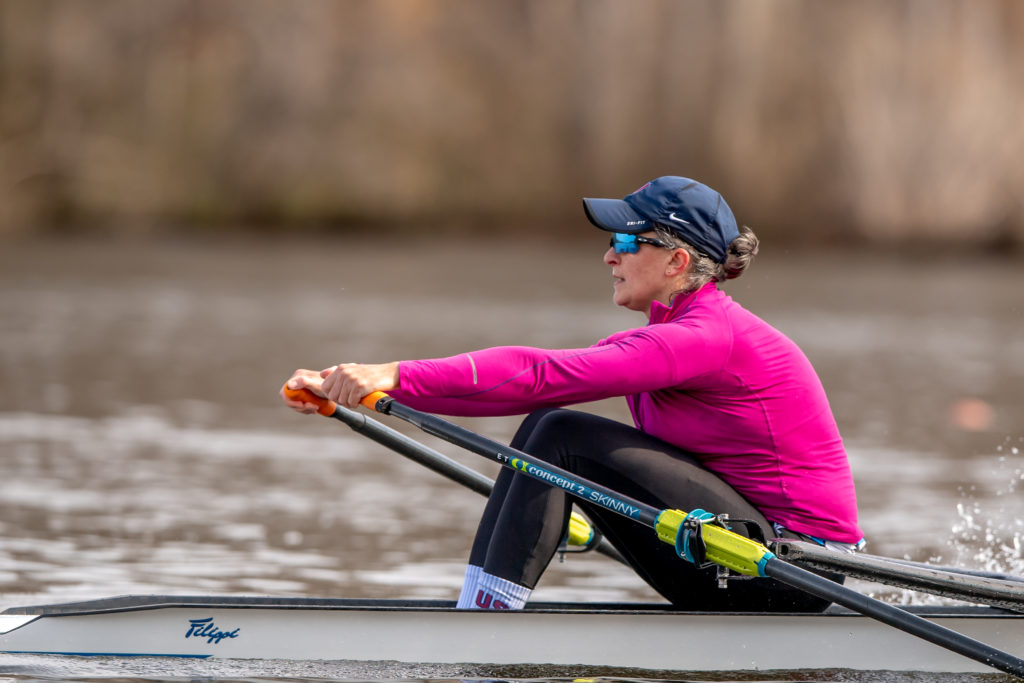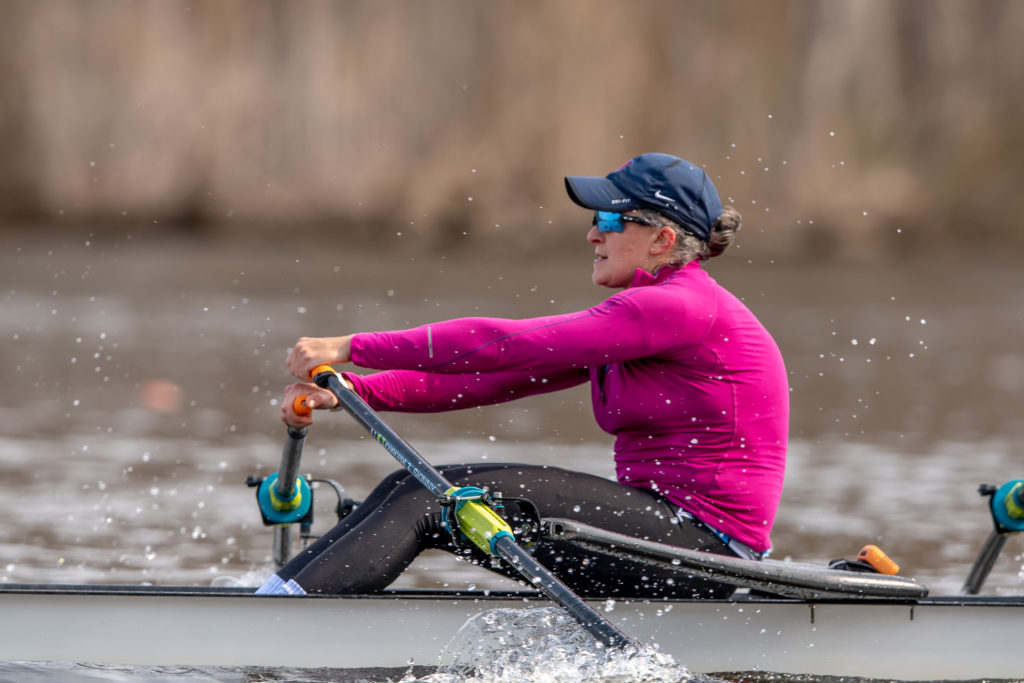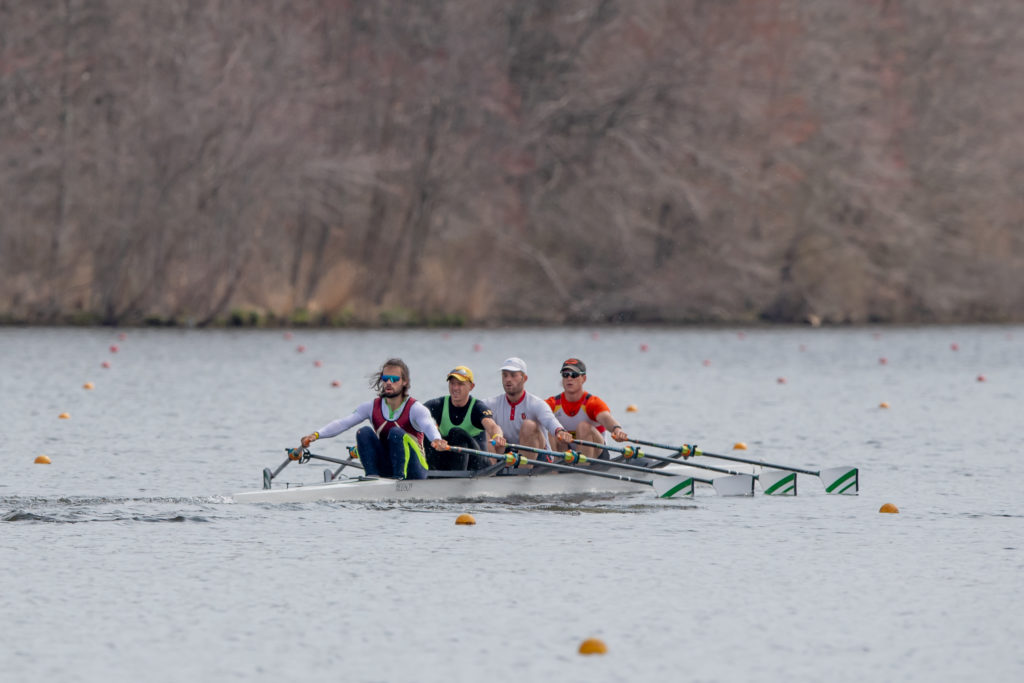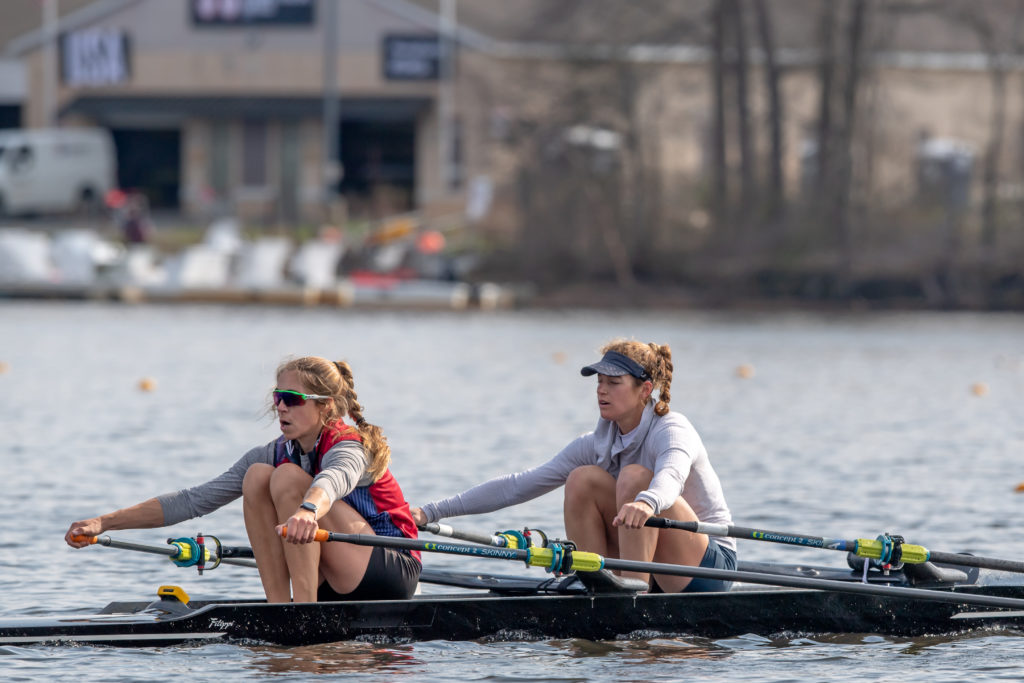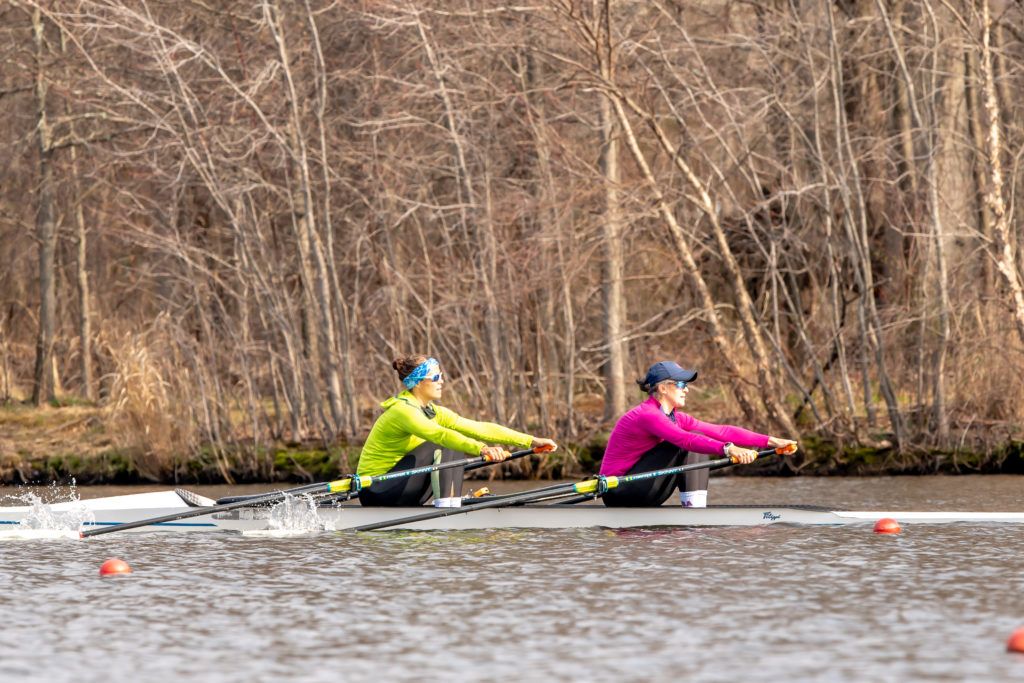STORY AND PHOTOS BY ED MORAN
To continue reading…
This article is exclusively for Rowing News subscribers. For as little as $5 a month, you can get access to the best quality, independent reporting on all the issues that matter to the North American rowing community.
Already a subscriber? Login
West Windsor, N.J. – When rowers were finally able to return to the water last year, team boats were out of the question due to Covid mitigation mandates. Across the country, sculling in singles became the only option.
The question then was, would so many sweep rowers in singles benefit the development of men’s sculling? Many coaches and athletes said they thought it would, but unlikely the impact would be felt this season.
Maybe not.
When U.S. Olympic Trials II begins Monday, there will be six men’s quads competing for the single chance to go to the Final Olympic Qualification Regatta in Lucerne next month to race for a spot on the Tokyo Olympic team.
Five of those crews are from clubs that have always featured elite men’s sculling, including two from the Craftsbury Green Racing Project, two composite entries from Philadelphia clubs, and one from Long Beach Junior Crew.
But in a surprise entry, the U.S. Men’s Training Center sent a crew from its Oakland sweep camp. Most of those athletes are from the sweep program, and only one, Michael Knippen, is an experienced elite sculler. The rest — Andrew Gaard, Spencer Furey, and Oliver Bub — began sculling in earnest in Oakland.

And now they are rowing in trials as the first quad entered in a national team trials from a men’s training center since 2012.
“It wasn’t by design,” said training center coach Nathanael Kielt. “These athletes organized it themselves. They asked if they could train for this and put together a boat, so we supported them and they’ve done good work. I don’t think it was our intention to do it, but here we are.”
Kielt said increased interest in sculling may also be part of the reason the men’s pair is an uncontested race. While there were 10 crews competing in the 2016 Olympic trials, and the pairs event is usually a well-subscribed field in all national team trials, the training center entry of Tom Peszek and Michael DiSanto is the only crew in the event.
Having the boat already qualified for the Rio Games likely had something to do with the number of entries in 2016, but out of a country where pair rowing is normal for collegiate training and international men’s racing, this is unusual.
“I think those two athletes saw a good opportunity for themselves and that’s why they are here,” Kielt said. “But it also looks like all the other elites around the country are looking at sculling apparently. There are a lot of quad entries. There were a lot of singles entries and a lot of double entries in trials one. I was surprised at how many quad entries there are here.”
Both the quad and the pair are not qualified for Tokyo and to gain a place in the 2021 Games, they will have to finish in the top two positions at the upcoming Final Olympic Qualification Regatta in Lucerne, Switzerland next month.
That is not the case for the women’s double, which is qualified for Tokyo.
Gevvie Stone and Cicely Madden qualified the boat with a fifth-place finish in Linz. Both are rowing in these trials but in different combinations.
Cambridge Boat Club is sending three crews, all six of whom rowed in the single at the first trials this year where Stone finished second to Kara Kohler. Kohler’s win earned her a spot on the Tokyo roster.
Two of the 16 crews entered will feature three Olympians — 2016 women’s single silver medalist Stone, and 2016 Rio finalists, Meghan O’Leary and Ellen Tomek.

O’Leary and Tomek finished sixth in the double in Rio, and then came back for the following two world championships where they won silver in 2017 and bronze in 2018.
“Ellen and I are excited to race in our second Olympic trials together,” said O’Leary. “The women’s double field is going to be incredibly fast, and we look forward to putting together the best regatta we can.”
O’Leary and Tomek finished second in the 2019 World Championship trials to Stone and Cicely Madden.
This time around, Stone will be rowing with Kristina Wagner, who had a strong performance in the singles trials in Sarasota in February, placing third in the final.
Madden is rowing with Margaret Fellows, fourth in the singles final. Madden was eliminated from the event in the semifinal.
All six Cambridge athletes returned to Boston and held a camp to select the best three combinations. “The whole group is going fast, which provides a lot of great competition,” said Stone. “One of the fun things in a new combination is you try to make improvements every day.

“I think we know that our boat has a lot of potential, and it’s a matter of how much we can improve between now and when racing begins, how much faster we can get. Obviously, we’re going to try and win it. But if you ask Cicely and Maggie, or Mary and Ali, they would say they are going to try and win it too.”
Also rowing in the women’s double event are Michelle Sechser and Molly Reckford, who won the lightweight women’s double at Trials I and will be racing at the Olympic qualifier next month.
The regatta will be spread over five days, but it won’t take that long for all the results to be known. Finals for the three para events are scheduled for Thursday. The PR1 men’s and women’s singles are uncontested. There are two crews in the PR2 mixed double. All three crews were qualified at the 2019 World Championships in Linz, Austria.
That the para singles are uncontested is not a huge surprise. There are not many trunk and arms single scullers in the U.S., and both 2016 Paralympian Blake Haxton, and Hallie Smith are experienced national team athletes who qualified their boat classes for the U.S.in 2019.
The para mixed double field includes, Bair Island Aquatic Center’s Laura Goodkind and Russell Gernaat, who finished eighth at the 2019 World Rowing Championships and qualified the U.S. for Tokyo. They are challenged by Community Rowing entry of Patrick Ward and Jennifer Fitz-Roy.




